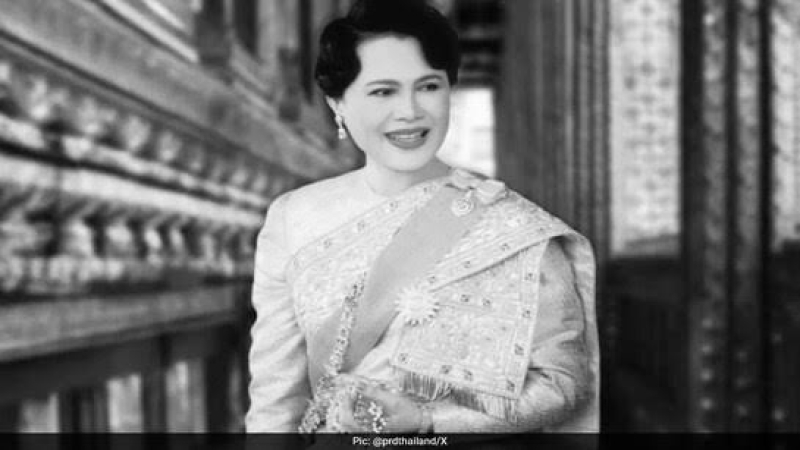- Dhaka’s air quality ‘unhealthy’ 5th worst in world Saturday |
- Dhaka’s air recorded unhealthy on Friday morning |
- Teesta activists announce ‘Silent Rangpur’ campaign in 5 districts |
- Ceasefire Offers Lifeline, but Gaza Hospitals in Ruins |
- Christensen calls next election most consequential in decades |
Thailand’s Queen Mother Sirikit dies at 93

Thailand’s Queen Mother Sirikit, renowned for her decades of work uplifting rural communities, supporting traditional crafts, and promoting environmental conservation, passed away on Friday at the age of 93.
The Royal Household Bureau announced that Sirikit died at a Bangkok hospital after battling a blood infection since October 17. Despite intensive medical care, her condition deteriorated. She had suffered a debilitating stroke in 2012 and had since largely withdrawn from public life. Her husband, King Bhumibol Adulyadej, passed away in October 2016.
Mourners gathered outside Chulalongkorn Hospital early Saturday, expressing grief over her death. “It’s another great loss for the whole nation. When I heard the news, it felt like the world stopped,” said 67-year-old Maneerat Laowalert.
Though often overshadowed by her late husband and her son, the current King Maha Vajiralongkorn, Sirikit commanded immense respect and affection in her own right. Her portrait adorned homes, offices, and public spaces nationwide, and her birthday, August 12, was celebrated as Mother’s Day. Her humanitarian work ranged from helping Cambodian refugees to spearheading forest conservation projects.
Life and Legacy
Born Sirikit Kitiyakara in Bangkok on August 12, 1932, into an aristocratic family with royal lineage, she was educated in wartime Bangkok before moving to France, where her father served as ambassador.
At age 16, she met the young King Bhumibol in Paris, where she was studying music and languages. Their friendship deepened after he suffered a serious car accident, and she later moved to Switzerland to assist in his recovery. The king courted her with poetry and a waltz titled “I Dream of You.”
They married in 1950, and during the king’s coronation that same year, both vowed to “reign with righteousness for the benefit and happiness of the Thai people.” The couple had four children — King Vajiralongkorn and princesses Ubolratana, Sirindhorn, and Chulabhorn.
Champion of Rural Development
From the 1970s onward, the royal couple devoted their time to domestic development, focusing on rural poverty, drug addiction, and insurgencies. Traveling extensively, they presided over hundreds of royal, religious, and state events annually.
Sirikit was known for her elegance but also for her hands-on approach. She often trekked to remote villages, where locals affectionately called her “daughter,” and personally listened to their struggles — from family disputes to serious illnesses.
To support rural livelihoods, she founded the SUPPORT Foundation in 1976, which trained thousands in silk weaving, jewelry-making, pottery, and other crafts. She also championed wildlife preservation and forest conservation through initiatives like “Forest Loves Water” and “Little House in the Forest.”
Despite occasional rumors about her lavish lifestyle or palace politics, her popularity among rural Thais remained strong. “People in rural Thailand feel neglected, and we try to bridge that gap by living with them in remote areas,” she told the Associated Press in 1979.
Sirikit believed the monarchy was essential to Thailand’s unity. “Some think the monarchy is outdated, but I believe Thailand needs a compassionate monarch,” she said. “At the words ‘The King is coming,’ thousands will gather. The very word ‘king’ carries something magical.”
Condolences poured in from across the region, including Malaysian Foreign Minister Mohamad Hasan, who extended his “heartfelt condolences” during a meeting of Southeast Asian leaders in Kuala Lumpur, reports UNB.

